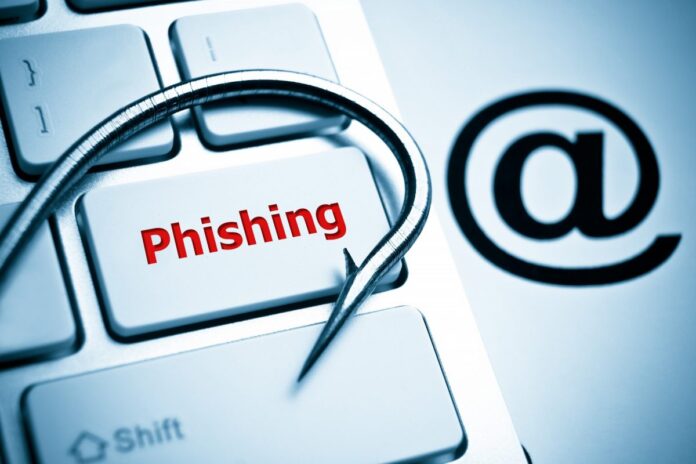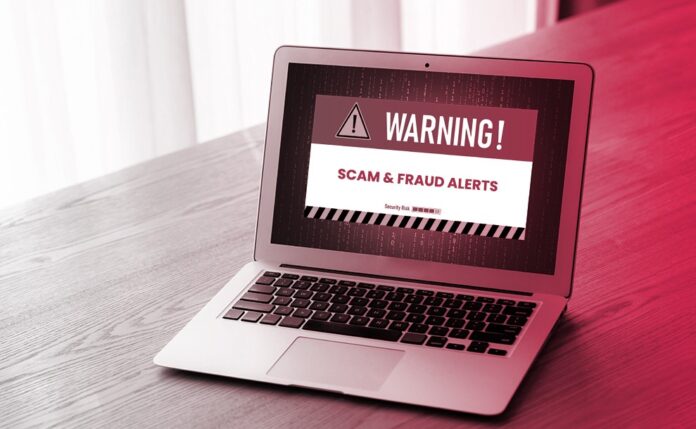
The holiday season brings joy, but it also opens doors to cyber scams, making online safety paramount. As we revel in holiday shopping and festive celebrations, cybercriminals exploit this busy time to trick unsuspecting victims.
This blog aims to enlighten you about recognizing and evading these scams. Understanding the intricacies of online scams during the holidays is not just about protecting your finances; it’s about safeguarding your digital identity against sophisticated cyber threats.
Types of Holiday Cyber Scams
During the holidays, a myriad of cyber scams emerge, preying on the festive spirit. Common scams include phishing emails, where scammers impersonate legitimate entities to steal information and fake websites that mimic real businesses to capture your details. Social media, too, becomes a hotbed for scams with fraudulent charity drives and enticing giveaways.
These scams can lead to severe consequences, such as financial loss, identity theft, and compromised personal security. Thus, recognizing and understanding these scams is a critical step in ensuring a safe online holiday experience.
Spotting Phishing Emails

Phishing emails are one of the most prevalent holiday scams. According to CyberGhost they often mimic the communication style of well-known companies, offering unbelievable deals or urgent notifications. Key indicators of phishing emails include suspicious sender addresses, grammatical errors, and implausible content.
These emails usually have malicious links or attachments designed to steal personal information. It’s crucial not to click on unfamiliar links or download attachments from unknown sources. Awareness and vigilance are your best defenses against these deceptive emails.
Verifying Website Authenticity
In the age of online shopping, verifying website authenticity is crucial. Scammers create fake websites that closely resemble legitimate ones to trick you into divulging personal information.
To avoid falling prey, look for secure connections indicated by ‘https://’ in the website URL, and check for valid contact information and genuine customer reviews. Be wary of websites with poor design, spelling errors, or unusual payment methods. Entering personal information on unsecured or dubious websites can lead to serious privacy breaches and financial theft.
Beware of Social Media Scams
Social media scams intensify during the holidays. They often appear as appealing giveaways, fake discount offers, or charity appeals exploiting the season of giving. These scams can be sophisticated, making it challenging to distinguish between legitimate and fraudulent posts.
To verify the legitimacy, scrutinize the profile for authenticity, check for verified badges, and research the offer or charity before participating. Remember, if an offer seems too good to be true on social media, it probably is.
Protecting Payment Information

Safeguarding your payment information is paramount in the digital age, especially during the holiday shopping spree. Be cautious while sharing credit card details and opt for secure payment methods. Websites that don’t offer secure payment options or demand direct bank transfers can be red flags.
Consider using virtual payment options like digital wallets, which provide an additional layer of security. This approach minimizes the risk of credit card fraud and keeps your financial data safe.
Educating Yourself and Others
In the digital age, educating yourself about the latest cyber scams is as essential as any other form of self-defense. Regularly follow reputable sources and news outlets to stay updated on emerging threats.
Online forums, cybersecurity blogs, and official government advisories are excellent resources for current information.
Educating yourself not only helps you recognize and avoid scams but also empowers you to become a source of knowledge. Share this vital information with friends and family. By spreading awareness, you build a community defense, much stronger than individual efforts, against the evolving tactics of cybercriminals.
Multi-Factor Authentication (MFA)
Multi-factor authentication (MFA) is a critical defense in your cybersecurity arsenal. By requiring two or more verification factors – something you know (like a password), something you have (like a phone), and something you are (like a fingerprint) – MFA makes it significantly harder for scammers to gain unauthorized access to your accounts.
This approach is especially important for protecting sensitive accounts like email, social media, and online banking. Most platforms offer easy-to-follow steps to enable MFA, and taking this small step can greatly enhance your security. Remember, each additional layer of authentication acts as another barrier against cyber intrusion.
Monitoring Bank Statements

Regular monitoring of bank statements is a vital practice in the early detection and prevention of financial fraud. It’s important to familiarize yourself with the usual pattern of your transactions so that you can quickly spot anything out of the ordinary. Look for small, unexplained charges, as scammers often test with minor amounts before making larger withdrawals.
If you notice any unfamiliar activity, report it to your bank immediately. The faster you act, the quicker the issue can be addressed, reducing the likelihood of substantial financial damage. Vigilant monitoring of financial activities is not just a precautionary measure but a necessary habit in today’s digital world.
Avoiding Public Wi-Fi Risks
Public Wi-Fi networks, while convenient, present significant risks when it comes to online shopping or banking. These networks are rarely secure, providing an easy opportunity for cybercriminals to intercept sensitive information. Avoid conducting any financial transactions or entering personal details while connected to public Wi-Fi. If you must access the internet in public spaces, use a Virtual Private Network (VPN).
A VPN encrypts your internet connection, ensuring that your data travels through a secure tunnel, invisible to hackers or prying eyes. This extra step can be crucial in protecting your sensitive information from being compromised in public spaces.
Reporting Scams
Reporting cyber scams is crucial in the fight against cybercrime. If you encounter or fall victim to a scam, report it to the appropriate authorities. This not only helps in possibly catching the culprits but also alerts others to the scam, preventing further victims.
Provide detailed information about the scam, including any relevant communication or transaction details. Your action can be a significant step in preventing the spread of these malicious activities.

Conclusion and Stay Safe
Recognizing and avoiding holiday cyber scams is about staying vigilant and informed. From spotting phishing emails to using secure payment methods, each step is crucial in safeguarding your online presence. Remember, cyber safety is a continuous process, not just a seasonal concern.
By staying alert and following these guidelines, you can enjoy a safer and more secure holiday season. Let’s prioritize online safety and make this holiday season a secure and joyful experience for everyone.





